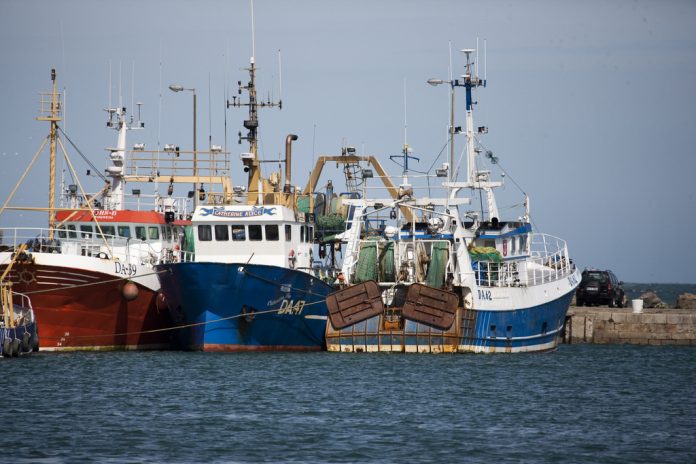British Prime Minister Theresa May is facing some “fishy” opposition from European Union countries. France, Denmark, the Netherlands, Spain, Belgium and Germany are expected to oppose a commitment to an all-UK customs deal on the basis that negotiations are yet to start on what access European fishermen will have to British waters after Brexit.
As reported by The Guardian, Brussels has repeatedly said it will only allow British seafood exporters tariff- and quota-free access to the European market in return for agreement that its fishing fleets can continue to operate around the UK.
Agreeing to a customs union in the withdrawal agreement would mean the EU had ceded its leverage by providing tariff-free trade on seafood into the internal market without reciprocal guarantees on access to British waters.
The issue has been discussed by the EU’s chief negotiator, Michel Barnier, with ministers from the member states.
The problem poses a fresh threat to the British government’s hopes of solving the issue of avoiding both a hard border on the island of Ireland and the creation of a customs border in the Irish Sea between Northern Ireland and Great Britain, reported The Guardian.
In response, May has suggested a “backstop” solution in the withdrawal agreement, under which Northern Ireland would in effect stay in the single market and customs union alone, to be scrapped in favour of the whole of the UK staying in a customs arrangement temporarily.
The backstop would come into force at the end of the transition period should a comprehensive trade deal that can ensure there is no need for a hard border on the island of Ireland not be agreed in time.
A senior EU official was quoted by The Guardian as saying that key member states would insist on the “trade-off” envisioned in the bloc’s negotiating position papers in which British exporters were given access to the single market in exchange for European fishermen keeping access to the seas around the UK.
“Access to waters will remain a priority,” an EU official said. “The problem now is that … you are basically saying you get tariff-free quota-free access – but we don’t know where we will end up on access.”
Niels Wichmann, the chief executive of the Danish fishermen’s association, which holds a place on the Danish ministry of food’s Brexit taskforce, said: “The issue of access to waters is part of the trade negotiations. That is what we have said from the start, and we discussed this with Michel Barnier when he came to Denmark. And he confirmed that this was also his position.”
Meanwhile, the UK environment secretary, Michael Gove, says he expects British fleets to “keep more of their own fish” after Brexit, in what would be a hammer-blow to EU fishermen. According to recent estimates, 33% of the catches of the European fishing fleet are caught in British waters.
According to The Guardian’s report, the EU industry estimates that a loss of access would lead to a reduction of about 50% in the European fleets’ net profit and thousands of jobs.

